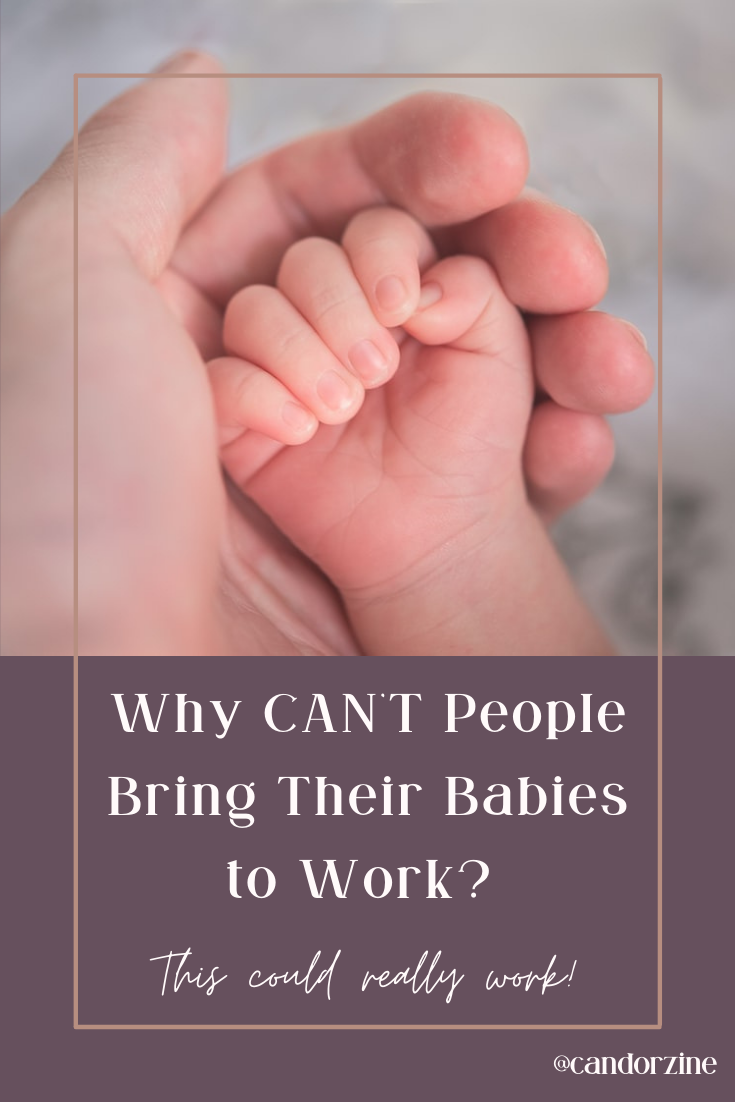Why CAN'T people bring their babies to work? This could really work.
Going back to work when my baby was 10 weeks old was heart-wrenching for me. No, heart-wrenching doesn’t even begin to cover it -- It was soul-crushing, heartbreaking, almost-physically-impossible. And with a newborn who did not appreciate being separated from her meal source (my boobs) and who flat out refused to take an alternative (a bottle), it was also hella inconvenient — full of trips from my office to daycare and back again. It was a relief when my child finally learned to take a bottle, but, at the same time, leaving her in the morning got even harder knowing it would be a full day before I got to see her again. I dreamed of bringing her to work with me. Once or twice I did, when she fell apart just before the end of my workday and I couldn’t bear to leave her again just to do a few more minutes of work. So I brought her into the office and allowed my coworkers to ooh and ahh while I rushed to get that last email sent or timesheet filled out while feeling panicked about how unprofessional I was for bringing my baby into work.
Having gone through all that (not to mention pumping breaks, what felt like constant sick days, and the constant painful ache of missing my child), I was intrigued — to say the least — but also skeptical of Girl Scouts of Greater Iowa’s new Infants-at-Work program. Essentially, the program allows parents and guardians to bring their infants to work with them up until the child learns to crawl or turns six months old (whichever comes first). As someone who dreamed of bringing my baby to work with me, when I heard about this program I immediately saw the potential benefit for parents (and babies). But I also had a nagging feeling that this could be a new way to expect parents to “do it all.” A new way to demand that parents return to work sooner, spend zero time away from their babies, not miss a beat in their careers, and — as the popular facebook meme says — “...work like they don’t have children and raise children as if they don’t work.”
sponsored by
Thankfully, GSGI leadership clearly worked diligently to ensure that the program created minimal disadvantages for staff — including both new parents and those who work with them. The program includes designated staff members who have volunteered to help with babies when parents need a bit of child-free work time, a parent/baby room to escape to with noisy babies, and — perhaps most importantly — this new option is in addition to a benefits package that includes eight weeks of PAID parental leave. And while I’d love to see that number of weeks increase, I have to applaud GSGI for doing FAR more in supporting new parents (and their babies) than can be found at most other employers.
If we’re going to see equitable workplaces with equal pay and opportunities (not to mention healthier, happier families), it is vital that the needs of families are addressed in company policies and benefits packages. And with so many options available, there is really no excuse to not at least be TRYING. Onsite daycare, telecommuting and/or modified schedules, and designated lactation rooms are just a few of countless examples of benefits that help parents and caregivers succeed and achieve a healthier work/life balance. And everyone benefits from this — employees, employers, and certainly families.
It’s also vitally important that companies enacting such policies do so thoughtfully, while centering the needs of employees rather than employers, as GSGI seems to have done with their Infants-at-Work program. Because a seemingly family-centered policy that is nothing more than lip service isn’t good enough. We deserve better than that. GSGI clearly recognizes that, and it’s time more employers follow suit.
http://www.girlscoutsiowa.org/en/our-council/news/2019/infants_join_workfor.html
https://www.leadershipambition.com/infants





